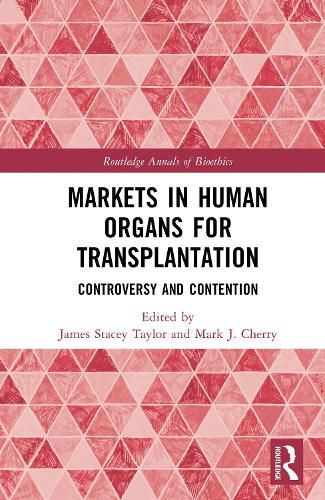Readings Newsletter
Become a Readings Member to make your shopping experience even easier.
Sign in or sign up for free!
You’re not far away from qualifying for FREE standard shipping within Australia
You’ve qualified for FREE standard shipping within Australia
The cart is loading…






This volume presents a comprehensive examination of one of bioethics' most divisive debates: whether human organs should be bought and sold. It brings together diverse philosophical perspectives from leading scholars who explore the moral, political, and practical dimensions of organ markets.
The volume addresses critical questions at the intersection of medicine, ethics, and economics:
Would financial incentives for organ donation save lives or exploit the vulnerable? Can organ markets be ethically regulated to prevent abuse? How do principles of distributive justice apply to organ allocation? Should bodily autonomy extend to selling one's organs?
Contributors include both proponents who argue that properly regulated markets would increase organ supply and reduce suffering, and opponents who contend that commodification of organs violates human dignity and risks exploitation. The collection examines utilitarian, libertarian, and communitarian approaches while considering real-world policy implications. It also offers nuanced analysis of paternalistic prohibitions, feasibility concerns, and alternative procurement systems. By presenting multiple viewpoints in dialogue, the volume provides readers with the intellectual tools to form their own informed positions on this controversial issue.
Markets in Human Organs for Transplantation is an ideal resource for researchers, students, and healthcare professionals interested in the ethical dimensions of transplant medicine.
$9.00 standard shipping within Australia
FREE standard shipping within Australia for orders over $100.00
Express & International shipping calculated at checkout
This volume presents a comprehensive examination of one of bioethics' most divisive debates: whether human organs should be bought and sold. It brings together diverse philosophical perspectives from leading scholars who explore the moral, political, and practical dimensions of organ markets.
The volume addresses critical questions at the intersection of medicine, ethics, and economics:
Would financial incentives for organ donation save lives or exploit the vulnerable? Can organ markets be ethically regulated to prevent abuse? How do principles of distributive justice apply to organ allocation? Should bodily autonomy extend to selling one's organs?
Contributors include both proponents who argue that properly regulated markets would increase organ supply and reduce suffering, and opponents who contend that commodification of organs violates human dignity and risks exploitation. The collection examines utilitarian, libertarian, and communitarian approaches while considering real-world policy implications. It also offers nuanced analysis of paternalistic prohibitions, feasibility concerns, and alternative procurement systems. By presenting multiple viewpoints in dialogue, the volume provides readers with the intellectual tools to form their own informed positions on this controversial issue.
Markets in Human Organs for Transplantation is an ideal resource for researchers, students, and healthcare professionals interested in the ethical dimensions of transplant medicine.